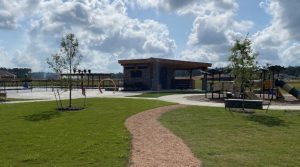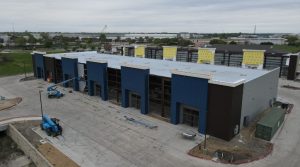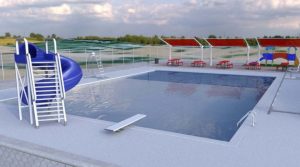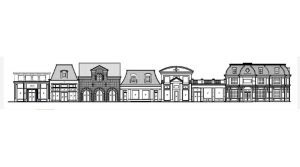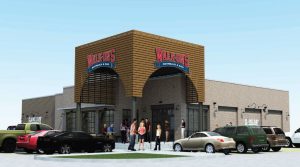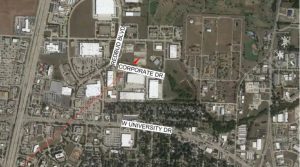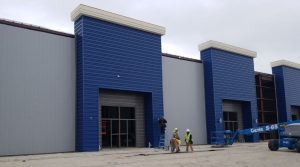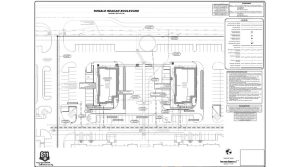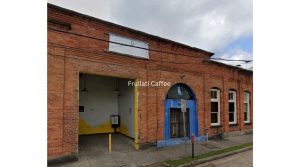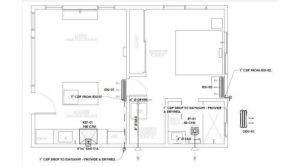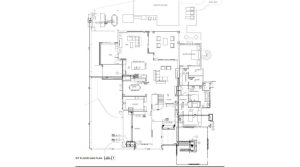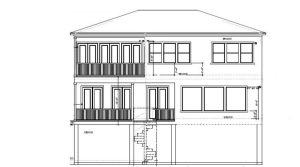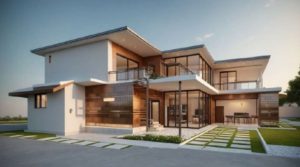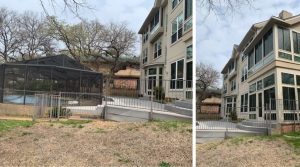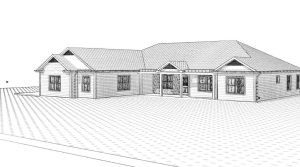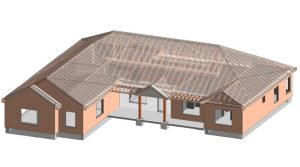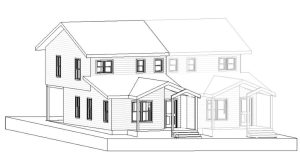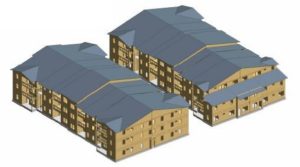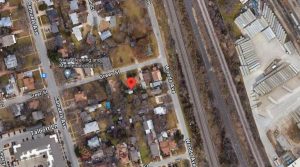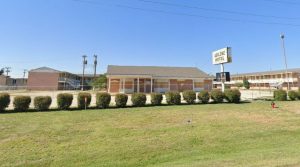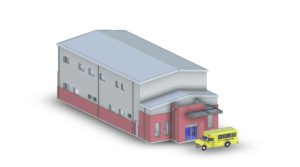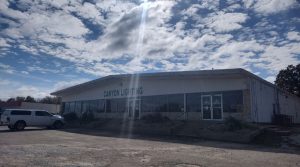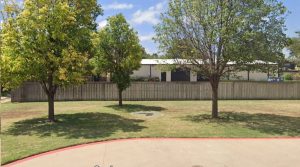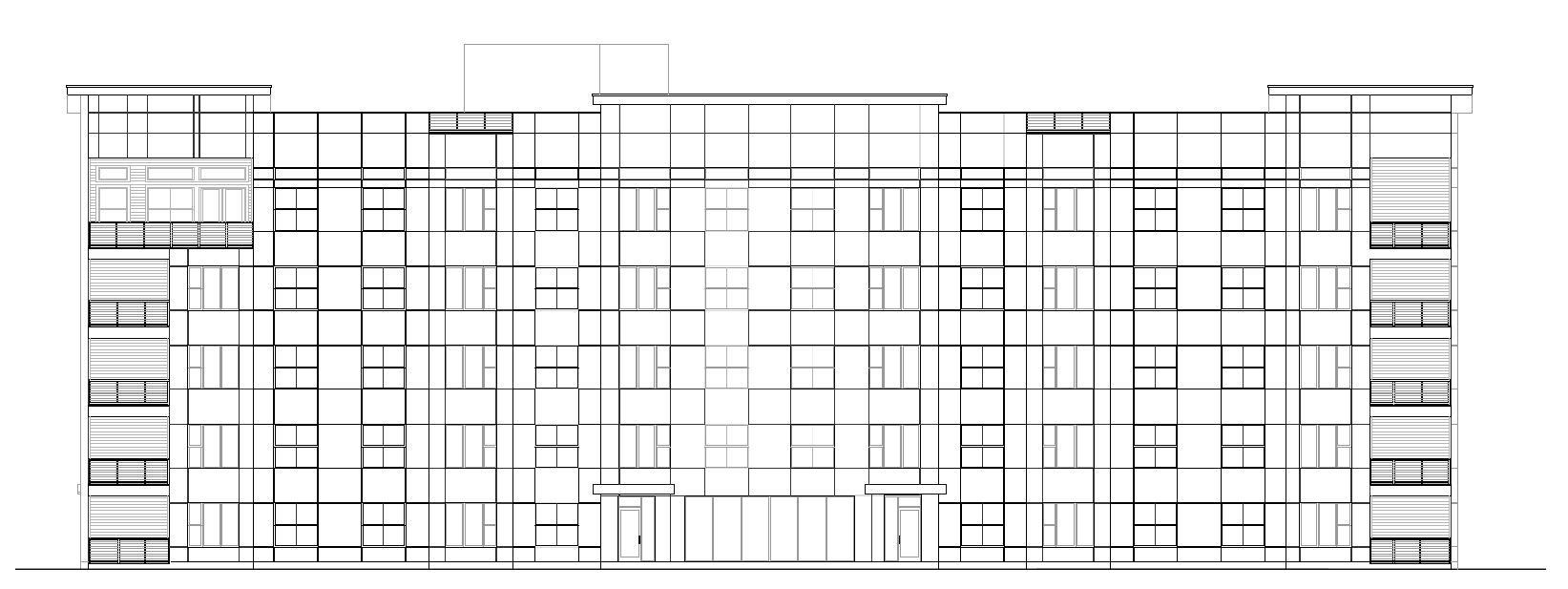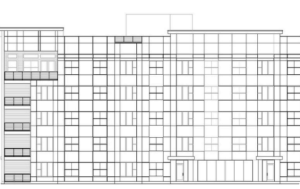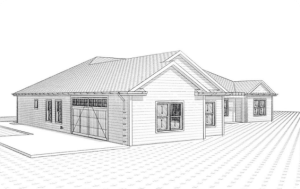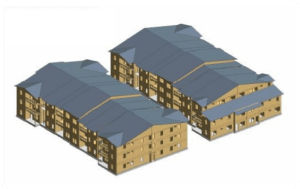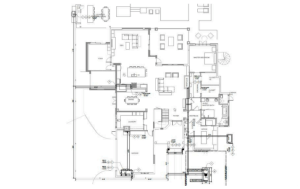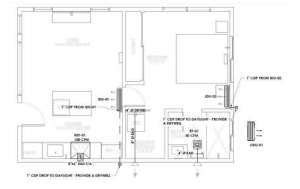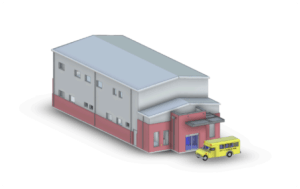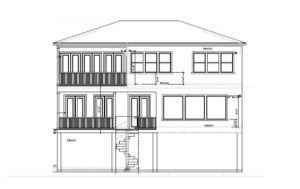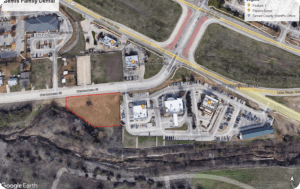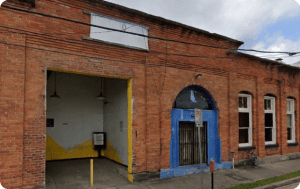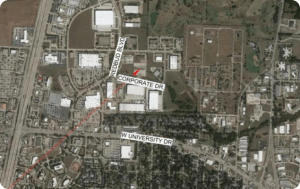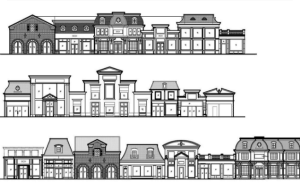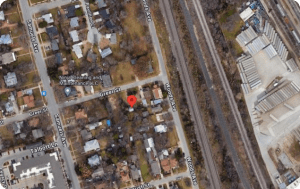Expert Solutions for Dealing with Seasonal HVAC Challenges: Insights from Leading MEP Design Professionals
As the seasons change, so do the challenges faced by your HVAC system. Whether it’s keeping your home cool in the summer heat or warming your house during the winter chill, your HVAC system is the key to keeping your home comfortable year-round. But what happens when your system doesn’t work the way it should? This is where the expertise of MEP design professionals comes in. These professionals are experts in the design, installation, and maintenance of HVAC systems. In this post, we’ll share insights from leading MEP design professionals on how to tackle some of the most common seasonal HVAC challenges. From maintaining indoor air quality to optimizing energy efficiency, read on to discover expert solutions that will help you keep your HVAC system running smoothly all year long.
1. Introduction to seasonal HVAC challenges and the importance of expert solutions
As the seasons change, so do the HVAC challenges that homeowners and businesses face. From sweltering summers to freezing winters, maintaining a comfortable indoor environment becomes a top priority. However, these seasonal transitions can put a strain on HVAC systems, leading to inefficiencies, increased energy consumption, and potential breakdowns.
That’s why it’s crucial to seek expert solutions when dealing with these seasonal HVAC challenges. In this blog post, we have gathered insights from leading MEP (Mechanical, Electrical, Plumbing) design professionals who have extensive experience in designing and optimizing HVAC systems for various seasons. Their expertise and knowledge can provide valuable guidance to homeowners and businesses alike.
The importance of expert solutions cannot be overstated. These professionals understand the intricacies of HVAC systems, from proper sizing and installation to regular maintenance and troubleshooting. By relying on their expertise, you can ensure that your HVAC system is operating at its peak efficiency throughout the year, regardless of the weather conditions outside.
Expert solutions also play a significant role in maximizing energy efficiency. With rising energy costs and growing environmental concerns, it is crucial to have HVAC systems that are designed to minimize energy consumption without sacrificing comfort. By incorporating energy-efficient technologies and practices, these experts can help you achieve significant cost savings and reduce your carbon footprint.
Furthermore, expert solutions are essential for the longevity and reliability of your HVAC system. Proper maintenance and timely repairs can prevent small issues from turning into major breakdowns, saving you both time and money in the long run. With their comprehensive knowledge of HVAC systems, these professionals can identify potential problems, offer preventive measures, and provide prompt solutions when needed.
In the following sections, we will delve into specific seasonal HVAC challenges and explore the expert solutions recommended by leading MEP design professionals. From optimizing cooling systems during scorching summers to ensuring efficient heating during freezing winters, these insights will give you the tools to navigate seasonal HVAC challenges with confidence.
Remember, seeking expert solutions is not only about addressing immediate challenges but also about ensuring the long-term performance and durability of your HVAC system. By investing in professional expertise, you can enjoy a comfortable indoor environment year-round while maximizing energy efficiency and minimizing unnecessary expenses. So, let’s dive into the world of seasonal HVAC challenges and discover the expert solutions that will help you overcome them.
2. Understanding the impact of changing seasons on HVAC systems
Understanding the impact of changing seasons on HVAC systems is crucial for maintaining optimal comfort and efficiency in any building. HVAC systems play a vital role in regulating temperature, humidity, and air quality, ensuring a comfortable and healthy environment for occupants.
As the seasons transition, the temperature and weather conditions fluctuate, which directly affects the HVAC system’s workload and performance. During the scorching summer months, the system is responsible for cooling and dehumidifying the air, while in winter, it must efficiently heat the space. Each season brings its unique challenges that need to be addressed to ensure the HVAC system operates effectively.
In summer, when temperatures soar, the HVAC system may face increased strain due to the demand for cooling. High outdoor temperatures can lead to a higher load on the system, potentially causing it to work harder and consume more energy. It is crucial to properly size the system, maintain adequate insulation, and regularly clean or replace air filters to optimize its performance and energy efficiency.
On the other hand, during winter, HVAC systems encounter different challenges. The colder temperatures require the system to provide sufficient heating to maintain a comfortable indoor environment. It is essential to ensure proper insulation, seal any air leaks, and regularly service the system to prevent heat loss and maintain optimal efficiency.
Furthermore, the transitional seasons of spring and fall also pose challenges for HVAC systems. During these periods, the system may need to switch between heating and cooling modes frequently. This transition can cause strain on the system if not properly maintained or calibrated. Regular maintenance, including cleaning and inspection, is crucial to ensure smooth transitions and optimal performance during these times.
Understanding the impact of changing seasons on HVAC systems allows building owners and facility managers to anticipate and address potential challenges proactively. By consulting with leading MEP design professionals, businesses can receive expert insights and solutions tailored to their specific needs. Implementing these expert solutions will not only enhance the longevity and efficiency of the HVAC system but also create a comfortable environment for occupants throughout the year.
3. Common seasonal challenges faced by HVAC systems
As the seasons change, HVAC systems face a variety of challenges that can impact their performance and efficiency. Understanding these common seasonal challenges is crucial for homeowners and businesses alike to ensure their HVAC systems continue to operate optimally throughout the year.
One of the most prominent challenges faced by HVAC systems during the hot summer months is the strain caused by increased demand for cooling. As temperatures rise, the demand for air conditioning increases, putting additional stress on the system. This can lead to issues such as reduced airflow, decreased cooling capacity, and potential breakdowns if not addressed properly.
On the other hand, during the winter months, HVAC systems face challenges related to heating. Cold weather can cause issues such as frozen pipes, reduced heat output, and inefficient operation. It is important to regularly maintain and inspect the system before the winter season to identify any potential issues and ensure proper functioning.
Another common challenge faced by HVAC systems during transitional seasons, such as spring and fall, is the need for frequent switching between heating and cooling modes. This transition can put additional strain on the system and may require adjustments to thermostat settings and airflow to maintain comfort and energy efficiency.
Additionally, seasonal changes in humidity levels can impact HVAC systems. High humidity levels in the summer can make the cooling process less effective, leading to discomfort and potential moisture-related issues. In contrast, low humidity levels in the winter can cause dryness and discomfort in indoor environments.
To overcome these seasonal challenges, it is essential to schedule regular maintenance and inspections by qualified professionals. This ensures that any potential issues are identified and addressed promptly, improving the overall performance and longevity of the HVAC system.
Furthermore, homeowners and businesses can also implement energy-saving practices, such as proper insulation, sealing air leaks, and using programmable thermostats, to mitigate the impact of seasonal challenges on their HVAC systems.
By understanding and proactively addressing these common seasonal challenges, homeowners and businesses can maintain a comfortable indoor environment while optimizing the performance and efficiency of their HVAC systems year-round.
4. Insights from leading MEP design professionals on dealing with these challenges
When it comes to dealing with seasonal HVAC challenges, there is no better source of insights and solutions than the leading MEP (Mechanical, Electrical, and Plumbing) design professionals. With their extensive knowledge and experience in designing and implementing HVAC systems, these experts have encountered and overcome numerous challenges related to seasonal variations.
One common challenge faced during hot summer months is ensuring optimal cooling and ventilation in buildings. According to these professionals, a well-designed HVAC system should take into account factors such as building orientation, solar heat gain, and air circulation patterns. By incorporating energy-efficient cooling technologies, such as variable refrigerant flow (VRF) systems or chilled beams, these professionals can provide effective solutions that not only maintain comfortable indoor temperatures but also minimize energy consumption.
On the other hand, winter brings its own set of challenges, particularly related to heating and humidity control. MEP design professionals emphasize the importance of proper insulation, sealing air leaks, and utilizing energy-efficient heating systems. They also recommend the use of humidifiers to combat dry indoor air, which can cause discomfort and health issues during the colder months.
Moreover, leading MEP design professionals highlight the significance of regular maintenance and inspections to ensure HVAC systems are functioning optimally throughout the year. By conducting routine checks, identifying potential issues, and implementing preventive measures, these professionals can help businesses and homeowners avoid unexpected breakdowns and costly repairs.
By tapping into the expertise of these MEP design professionals, individuals and organizations can gain invaluable insights and solutions for dealing with the seasonal HVAC challenges. Their knowledge and experience can guide the implementation of efficient and sustainable HVAC systems, ultimately leading to improved comfort, energy savings, and overall satisfaction.
5. Efficient HVAC design strategies for different seasons
Efficient HVAC design strategies can make a significant difference in maintaining optimal indoor comfort throughout different seasons. Leading MEP design professionals understand the importance of adapting HVAC systems to meet the specific needs of each season.
During the hot summer months, it is crucial to focus on cooling strategies. This can include the implementation of energy-efficient air conditioning systems, such as variable refrigerant flow (VRF) systems or chilled beam systems. These systems provide precise control over temperature and airflow, ensuring that occupants remain comfortable while minimizing energy consumption.
In contrast, winter brings its own set of challenges, with the need for effective heating solutions. One strategy employed by MEP design professionals is the use of radiant heating systems. These systems utilize radiant panels or underfloor heating to distribute heat evenly throughout the space. This not only ensures a comfortable environment but also reduces energy wastage by eliminating the need for excessive heating.
Transition seasons like spring and fall require a more balanced approach. One effective strategy is the implementation of a zoned HVAC system. This allows for individual control of temperature in different areas of a building, providing personalized comfort while minimizing energy usage. Additionally, the use of natural ventilation techniques, such as operable windows and ventilation louvers, can help regulate indoor air quality and temperature during mild weather conditions.
Moreover, employing smart HVAC controls and automation can optimize energy efficiency regardless of the season. These systems utilize sensors and algorithms to continuously monitor and adjust the HVAC system based on occupancy, outdoor weather conditions, and other factors. This ensures that energy is utilized efficiently, reducing costs and environmental impact.
By incorporating these efficient HVAC design strategies, MEP professionals can help buildings adapt to the changing seasons seamlessly. Whether it’s keeping occupants cool during scorching summers or providing warmth during chilly winters, the right HVAC design can create a comfortable and energy-efficient indoor environment year-round.
6. Importance of regular maintenance and tune-ups for seasonal transitions
Regular maintenance and tune-ups for HVAC systems are crucial when it comes to handling seasonal transitions effectively. As the weather changes, it is important to ensure that your HVAC system is in optimal condition to provide the desired comfort levels for your space.
During seasonal transitions, HVAC systems often face increased demands. For example, as summer approaches, the system needs to be prepared to handle the rising temperatures and increased cooling requirements. Similarly, during winter, the system must be ready to provide efficient heating to keep the space warm and cozy.
Regular maintenance and tune-ups help identify any potential issues or inefficiencies in your HVAC system before they escalate into major problems. By proactively addressing these concerns, you can avoid unexpected breakdowns and costly repairs, ultimately saving you both time and money.
During a maintenance check, HVAC professionals will inspect and clean various components of your system. They will ensure that the filters are clean and functioning correctly, the ducts are clear of debris, and the electrical connections are secure. They may also assess the system’s refrigerant levels, lubricate moving parts, and calibrate controls to optimize performance.
Not only does regular maintenance improve the overall efficiency and longevity of your HVAC system, but it also helps maintain indoor air quality. A well-maintained system reduces the risk of mold, bacteria, and other contaminants circulating in your space, promoting a healthier environment for occupants.
Moreover, scheduling regular maintenance and tune-ups allows you to stay ahead of any potential issues that may arise during seasonal transitions. By addressing these concerns proactively, you can ensure that your HVAC system operates smoothly throughout the year, providing optimal comfort and energy efficiency.
In conclusion, regular maintenance and tune-ups for your HVAC system are essential for managing seasonal transitions effectively. By investing in the proper care and upkeep of your system, you can prevent problems, improve energy efficiency, and maintain a comfortable indoor environment for years to come.
7. Upgrading and optimizing HVAC systems for improved performance
Upgrading and optimizing HVAC systems can greatly improve their performance, especially when dealing with seasonal challenges. As the seasons change, so do the demands placed on heating, ventilation, and air conditioning systems. It is crucial for businesses and homeowners to ensure their HVAC systems are ready to handle these changing needs.
One effective solution is to invest in energy-efficient HVAC equipment. Newer models are designed to provide enhanced performance while minimizing energy consumption. By upgrading to these energy-efficient systems, you can not only improve the comfort of your indoor environment but also reduce your energy bills.
Another important aspect of optimizing HVAC systems is proper maintenance. Regular maintenance checks and tune-ups can help identify any issues or inefficiencies in the system. This includes cleaning or replacing filters, checking for leaks or ductwork damage, and ensuring proper airflow. By addressing these maintenance tasks, you can ensure that your HVAC system operates at its full potential and avoids any unnecessary strain during peak seasons.
Additionally, implementing smart thermostats and controls can greatly enhance the performance and energy efficiency of HVAC systems. These smart devices allow for precise temperature control and scheduling, allowing users to optimize their HVAC usage based on their specific needs. For example, you can program the system to lower the temperature when the space is unoccupied or adjust the settings remotely through a smartphone app.
Furthermore, considering the use of zoning systems can be an effective solution for dealing with seasonal challenges. Zoning allows for different areas or rooms to have individual temperature control, ensuring that each space is heated or cooled based on its specific requirements. This not only improves comfort but also optimizes energy usage by avoiding over-conditioning of unused areas.
In conclusion, upgrading and optimizing HVAC systems is crucial for effectively dealing with seasonal challenges. By investing in energy-efficient equipment, conducting regular maintenance, utilizing smart thermostats, and implementing zoning systems, businesses and homeowners can ensure improved performance, enhanced comfort, and reduced energy consumption. Consulting with leading MEP design professionals can provide valuable insights and expertise in implementing these solutions tailored to your specific needs.
8. Energy-saving tips for different seasons
Energy-saving tips for different seasons can help you optimize your HVAC system’s performance and reduce your energy consumption all year round. By implementing these expert solutions, you can not only save money on your utility bills but also contribute to a more sustainable environment.
1. Spring:
– Take advantage of the mild weather by opening windows and allowing fresh air to circulate in your home. This can help reduce the need for artificial cooling and ventilate your space naturally.
– Schedule regular maintenance for your HVAC system to ensure it is running efficiently before the summer heat arrives.
2. Summer:
– Set your thermostat to a higher temperature when you are away from home or during the night to conserve energy. Utilize programmable thermostats to automatically adjust the temperature based on your schedule.
– Use ceiling fans to enhance air circulation and create a cooling effect, allowing you to raise the thermostat temperature without sacrificing comfort.
– Keep blinds or curtains closed during the day to block out sunlight and prevent heat gain.
3. Fall:
– Take advantage of the cooler weather by opening windows and using natural ventilation to cool your home instead of relying solely on your HVAC system.
– Ensure that your heating system is properly maintained and functioning efficiently before the winter months approach.
4. Winter:
– Set your thermostat to a lower temperature when you are away from home or at night. Layer clothing and use blankets to stay warm instead of relying solely on your HVAC system.
– Seal any air leaks around windows and doors to prevent heat loss and improve energy efficiency.
– Consider installing a programmable thermostat or a smart thermostat that can learn your preferences and adjust the temperature accordingly.
Implementing these energy-saving tips can significantly reduce your energy consumption and make a positive impact on both your wallet and the environment. Consult with HVAC professionals for personalized recommendations and solutions tailored to your specific needs and climate.
9. The role of smart technology in managing seasonal HVAC challenges
Smart technology has revolutionized various aspects of our lives, and the HVAC industry is no exception. When it comes to managing seasonal HVAC challenges, smart technology offers innovative solutions that enhance efficiency, comfort, and cost-effectiveness.
One of the key advantages of smart technology in HVAC systems is its ability to adapt to changing weather conditions. With smart thermostats, for instance, users can easily program temperature settings based on the time of day or specific days of the week. This allows for optimal energy usage and ensures that the HVAC system operates at its peak performance during different seasons.
Another significant feature of smart technology is its ability to provide real-time data and analytics. This enables HVAC professionals to monitor and assess the system’s performance, identify potential issues or inefficiencies, and make necessary adjustments promptly. By having access to this data, building owners and facility managers can make informed decisions about energy usage, maintenance schedules, and system upgrades, leading to improved overall performance and reduced energy costs.
Furthermore, smart technology allows for remote monitoring and control of HVAC systems. This means that even when you’re away from your property, you can easily adjust temperature settings, monitor energy consumption, and receive alerts or notifications regarding any system irregularities. This level of control and convenience not only enhances comfort but also provides peace of mind to homeowners and facility managers.
In addition to these benefits, smart technology in HVAC systems often integrates with other smart home devices and platforms. This enables seamless automation and coordination between different systems, such as lighting, security, and HVAC, creating a holistic and interconnected smart environment. For example, the HVAC system can adjust its settings based on occupancy sensors or weather forecasts, further optimizing energy usage and comfort levels.
Overall, the role of smart technology in managing seasonal HVAC challenges is undeniable. It offers advanced features, real-time data insights, remote control capabilities, and integration opportunities that contribute to more efficient, sustainable, and comfortable indoor environments. As HVAC professionals embrace these technological advancements, they can provide expert solutions that address seasonal challenges effectively and ensure optimal performance for their clients.
10. Conclusion and key takeaways from the experts
In conclusion, the insights provided by the leading MEP design professionals offer valuable solutions for dealing with seasonal HVAC challenges. Here are the key takeaways from their expertise:
1. Regular maintenance: It is crucial to schedule regular maintenance for your HVAC system to ensure optimal performance and efficiency throughout the year. By conducting routine inspections, cleaning, and servicing, you can prevent potential issues before they become major problems.
2. Proper insulation: Adequate insulation plays a vital role in maintaining desired indoor temperatures during both hot summers and cold winters. Investing in quality insulation materials and sealing any gaps or cracks will help minimize heat loss or gain, reducing the workload on your HVAC system.
3. Smart thermostat usage: Utilizing programmable or smart thermostats can significantly enhance energy efficiency and comfort. These advanced devices allow you to schedule temperature adjustments based on occupancy patterns, ensuring that your HVAC system operates efficiently when needed and conserves energy when not in use.
4. Zoning systems: Implementing zoning systems can optimize HVAC performance by dividing your space into different zones with independent temperature controls. This enables customized heating and cooling based on individual comfort requirements, reducing energy wastage and improving occupant satisfaction.
5. Air quality considerations: Maintaining excellent indoor air quality is essential for a healthy and comfortable environment. HVAC professionals recommend regular filter replacements, proper ventilation, and the use of air purifiers to minimize allergens, pollutants, and contaminants in the air.
By implementing these expert solutions, you can overcome seasonal HVAC challenges and ensure optimal performance, energy efficiency, and comfort in your space. Consulting with qualified MEP design professionals can further assist in tailoring these recommendations to your specific needs and maximizing the benefits for your HVAC system.
Remember, proactive measures and professional guidance are key to addressing seasonal fluctuations effectively and enjoying a well-functioning HVAC system year-round.
We hope you found our blog post on expert solutions for dealing with seasonal HVAC challenges insightful. With insights from leading MEP design professionals, we have provided you with valuable tips and strategies to tackle the specific challenges that arise with changing seasons. By implementing these expert solutions, you can ensure optimal performance, energy efficiency, and comfort in your HVAC system year-round. Remember to schedule regular maintenance and consult with professionals when needed to ensure the longevity and effectiveness of your HVAC system. Thank you for reading, and may your indoor climate always be just right!


